'No going back' for Scotland's book festivals
- Published
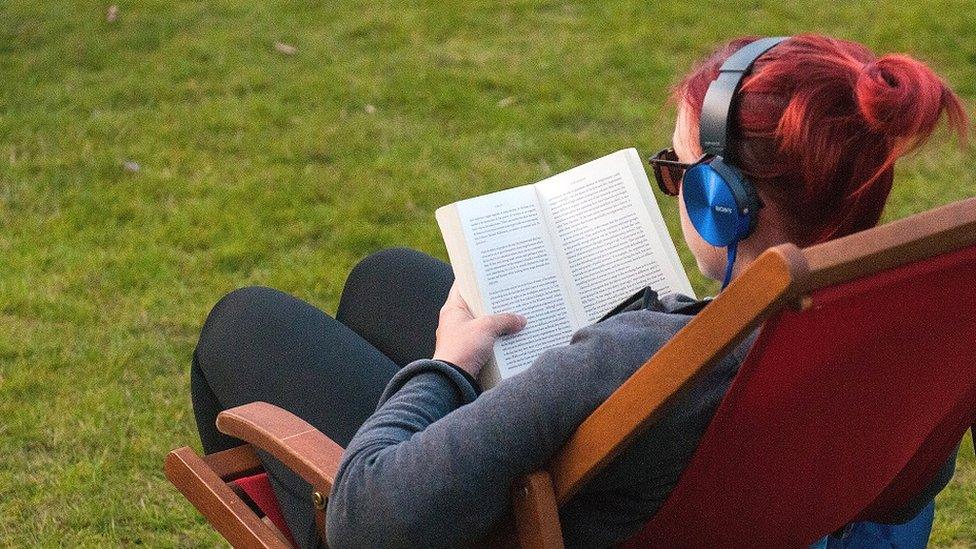
Many book festivals are looking at continuing some digital elements this year
Book festivals across Scotland have been busy drawing up plans to cope with an uncertain year ahead.
An online format, a change of date or switch of venue are among the options being explored to try to help meet the nation's literary needs.
Paisley Book Festival is one of the first into the fray this year, running from 18 to 27 February., external
Launched last year on the back of its UK City of Culture bid, this time around it will be an online event.
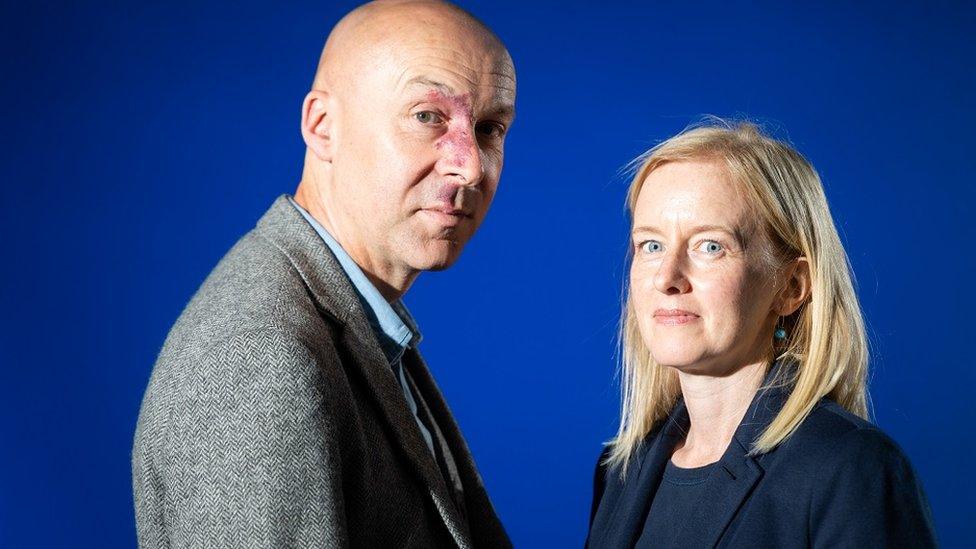
Chris Brookmyre and Dr Marisa Haetzman are taking part in the Paisley Book Festival
Among those taking part are Douglas Stuart, Chris Brookmyre and Dr Marisa Haetzman.
Organisers said they had been lucky to be one of the few cultural events to take place before lockdown last year.
They said that because they were "such a young festival" they had been ready to "embrace new ideas and opportunities" with their digital event which has seen thousands of free tickets distributed.
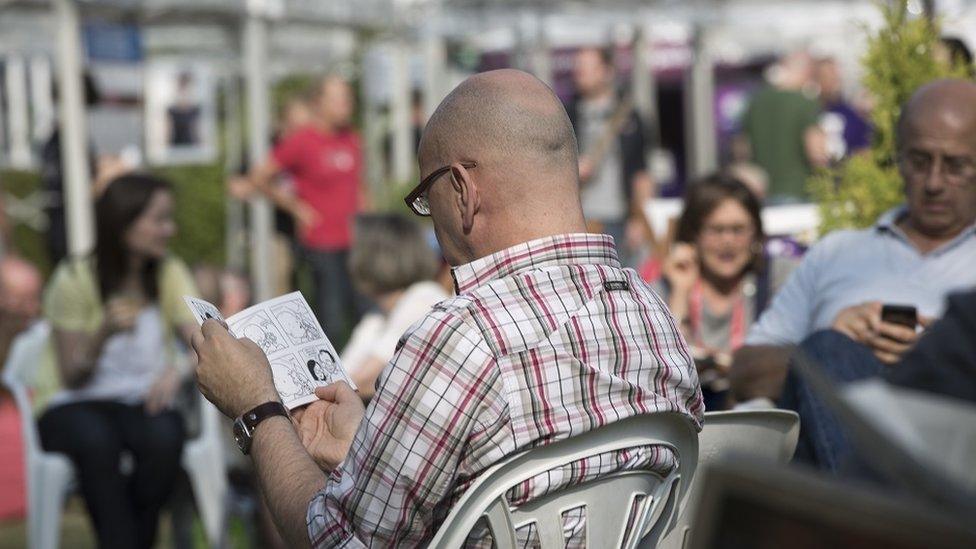
Edinburgh Book Festival is leaving behind Charlotte Square Gardens to move to a new home
Edinburgh International Book Festival is physically on the move this year - after a digital edition last year - to Edinburgh College of Art.
It has said that with ticket sales impossible to estimate for August it could not justify the costs of tents and infrastructure at its old home on Charlotte Square Gardens.
It is yet to decide fully on the format this time around but will definitely retain digital elements.
"It is far too early to say whether we will be permitted to have in-person audiences at events this year," said a spokesperson.
However, "if rules allow" its new home could offer the "oasis of calm" for which the festival said it was known.
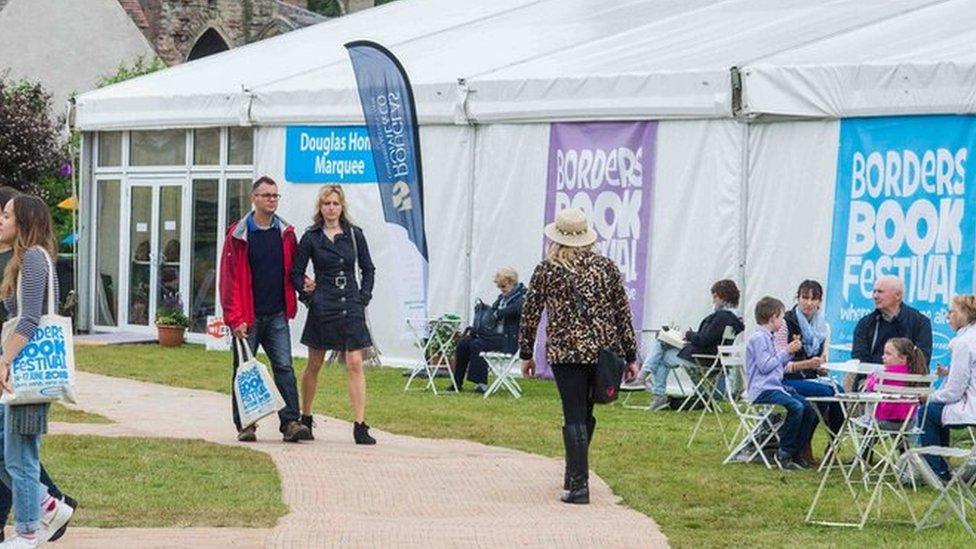
A later date has been taken by the Borders Book Festival this year
The Borders book festival in Melrose has already announced a change of date in the hope of being able to proceed on a more "normal" basis.
Traditionally held in June, it had to go online last year due to the pandemic, and is now planned for September.
Glasgow-based Aye Write also plans a change of date - from March to May - but it will be virtual.
"Initially we thought we might have managed some physical events and some digital, but as time has passed we've made our peace with the fact that this year will be fully online," said director Bob McDevitt.
"We're going to be kicking off just after the Scottish election (6 May) and coming down before the Hay festival starts (26 May)."
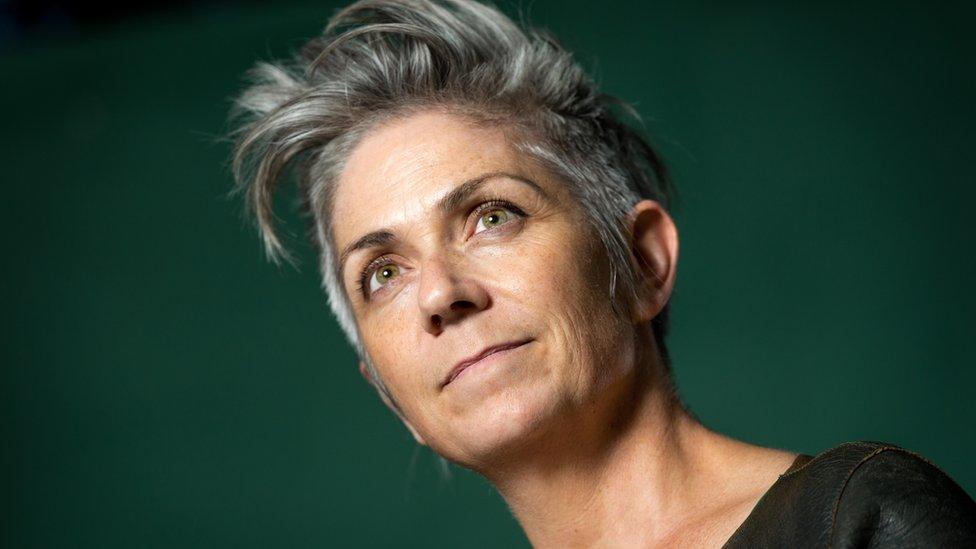
Bloody Scotland in Stirling celebrates the work of crime writers like Denise Mina
Bloody Scotland - the crime writing event - said it was "definitely looking at a hybrid festival" later this year.
"No-one can tell what the world will be like in September but we would love to have a presence in Stirling and are working closely with Stirling Council and various other organisations to see how that might work," said a spokeswoman.
It is a similar story for the Nairn Book and Arts Festival, also held in September, which went virtual in 2020 and is "carefully monitoring" the ongoing situation.
"It was the first time we had run a solely online event but it was largely successful and helped us to reach new audiences," said Alex Williamson, who chairs the festival.
"However, one key bit of feedback we received was that people had missed the social aspect of live events - and not just ours, but other arts festivals and local events more generally."
This year, he said, a "hybrid" event was likely.
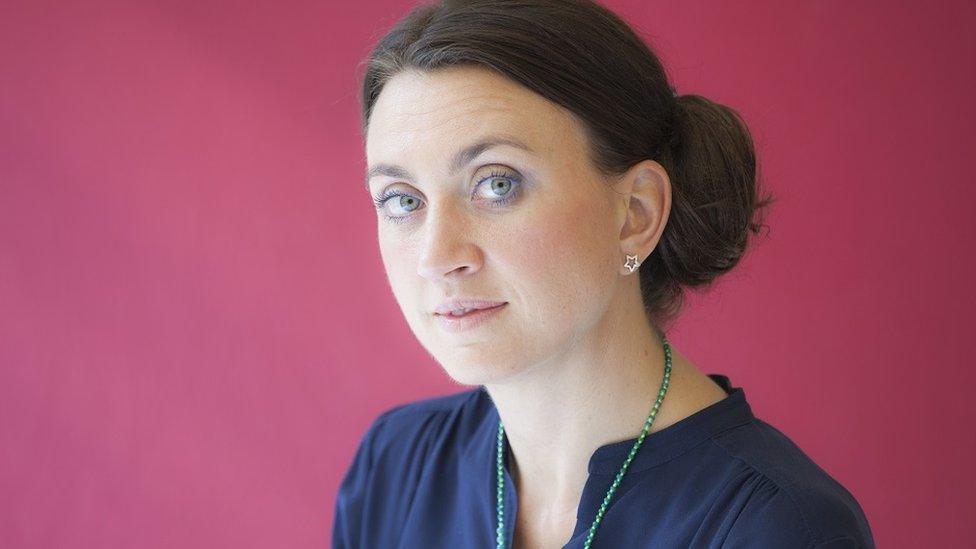
The online format means Camilla Lackberg is among those joining Granite Noir this year
Aberdeen's Granite Noir was able to go ahead as normal last year with 12,000 people attending but is online this year from 19 to 21 February.
"Going digital is an exciting new format, the chance to stage things a little differently and to make new connections," said Aberdeen Performing Arts' chief executive Jane Spiers.
"It lets our audiences know we're still here for them and it's much more than just keeping the seat warm."
The online format has secured names including Jo Nesbo, Camilla Lackberg and David Baldacci who have been on their "wish list" since they began.
However, Ms Spiers said "nothing beats" a live performance which they hope can return in 2022.
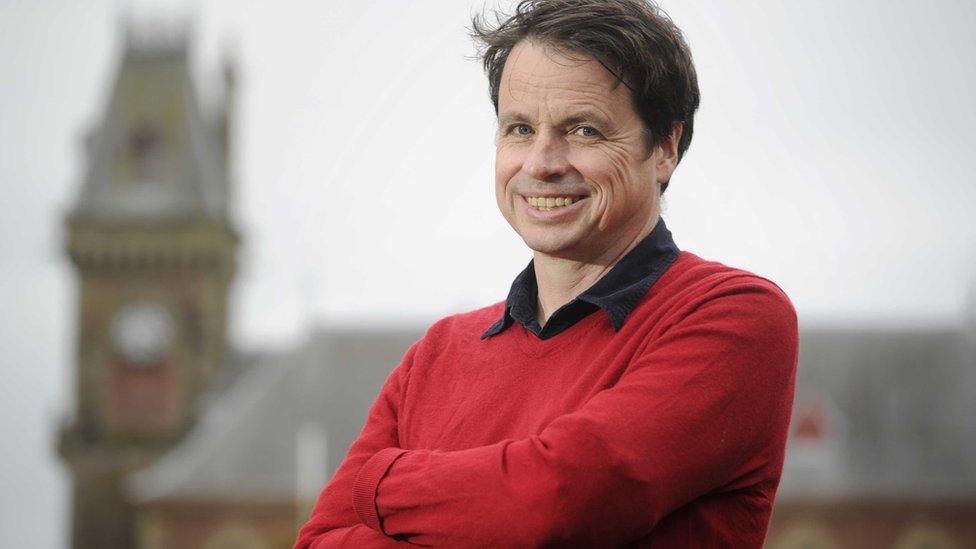
One of the last festivals in the year is at Wigtown - Scotland's national booktown - which went online last October.
"It was a weird experience in some ways but I think it still felt like a Wigtown book festival," said director Adrian Turpin.
"We have been on a massive learning curve.
"This time last year we had never produced a single digital event."
He said he believed that meant an online offering was likely to be some part of proceedings in future.
"I don't think there is any going back," he said.
"It just means we have got another very useful tool in our tool kit.
"My gut feeling is that the most likely scenario is a festival with some events in public buildings but smaller and with social distancing," he said.